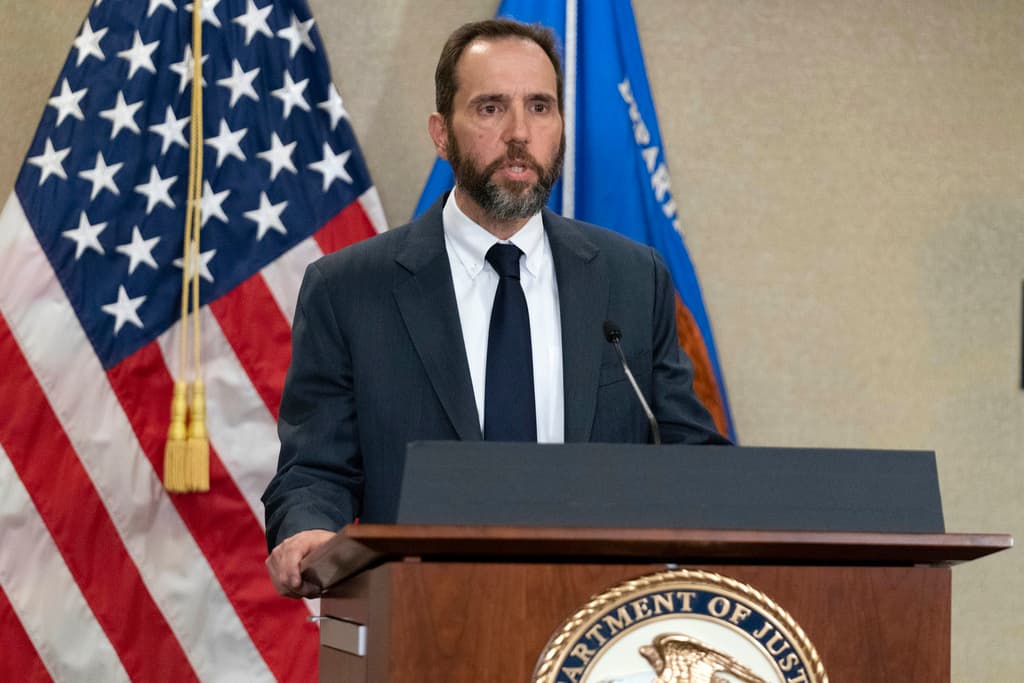Invitation to an Insurrection?
Could the Supreme Court’s disqualification ruling beget a charge that so far has been conspicuous in its absence?

The Supreme Court’s ruling rejecting Colorado’s disqualification of President Trump from the ballot on the basis of Section Three of the 14th Amendment leaves us less than fully comfortable. It’s not that we disagree with the core majority of the court. It’s just that we’re not so sure that it’s the end of the matter. So we put in a call to a leader of the anti-disqualification camp, Joshua Blackman of South Texas College of Law.
Turns out Professor Blackman, too, worries that the ruling might not be the end of the matter. The 14th Amendment says any federal official who “engaged in insurrection” is disqualified from holding future office. The Nine observed that Mr. Trump has not been convicted, or even accused, of insurrection in any federal tribunal. Yet what might happen were a charge of insurrection laid to Mr. Trump in a federal court and a verdict of guilty brought in?
That could happen between now and November 5, or even after. Mr. Blackman warns that such a conviction under the insurrection statute — even though that law predates the 14th Amendment — would qualify, under the Supreme Court’s reasoning, as a Congressional seal of approval. All the more remarkable, then, that neither Special Counsel Jack Smith nor any federal prosecutor has handed up an insurrection charge to any January 6 defendants.
Instead, Mr. Trump faces a melange of charges — including a monkey-with-a-parasol accusation of violating the Sarbanes-Oxley Act, which was meant to counter financial malfeasance. He is also accused of conspiring to undo the election results and violating a civil rights law. Other January 6 defendants faced charges of seditious conspiracy, described by Laurence Tribe as “treason’s sibling.” A serious crime, to be sure, but short of insurrection.
No federal tribunal, including the Supreme Court, has found that an insurrection occurred — let alone convicted Mr. Trump. Why then, have his foes pursued a meandering path toward barring him from the ballot when a direct path was — and is — available? The answer would appear to be that they have doubts that they can make an insurrection charge stand up in court. Such a rap, after all, failed at impeachment, when Mr. Trump was found “not guilty.” *
In the federal realm, that is the last, and only, verdict. So we wonder if Mr. Smith — or some other enterprising federal prosecutor — could see the Nine’s overturning of the Colorado high court’s decision to disqualify as a green light to charge insurrection. This could possibly come via a superseding indictment in the January 6 case. Such a decision, now, would have a political and not just a legal valence, as Mr. Smith pushes to try Mr. Trump before the election.
Would it be enough, though, for a president to be disqualified if he is convicted of insurrection by a federal court? Justice Sonia Sotomayor reads the majority as ruling that “disqualification for insurrection can occur only when Congress enacts a particular kind of legislation pursuant to Section 5 of the Fourteenth Amendment.” Such a law, as we see it, could not target a particular president, for that would violate the prohibition on attainder.
There are still two outstanding questions, neither of which the Supreme Court addressed. One is whether the president is even covered by the Disqualification Clause of the 14th amendment, in that the president may not be technically an “officer of the United States.” The other is whether the president’s acquittal, during impeachment, of an insurrection charge would bar his further trial under the prohibition on double jeopardy.
Just to be clear, we are not recommending a last minute charge of insurrection. We don’t think there was an insurrection. We’re but suggesting that Mr. Smith could be tempted. His goal is to convict Mr. Trump before a vote, though acting on that political factor is forbidden by Justice Department rules, which warn against such political calculation. Hence the thought that he’d be tempted to try to block Mr. Trump forever.
________
* Mark, too, that the burden of proof in an impeachment is much lower than in a criminal trial, in that only two thirds of the “jury” — meaning, the senators — have to find the accused guilty. In a criminal trial, the jury needs to be unanimous.

